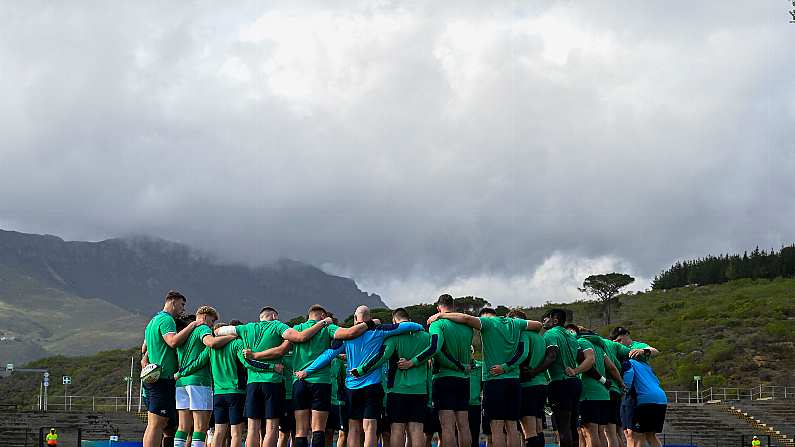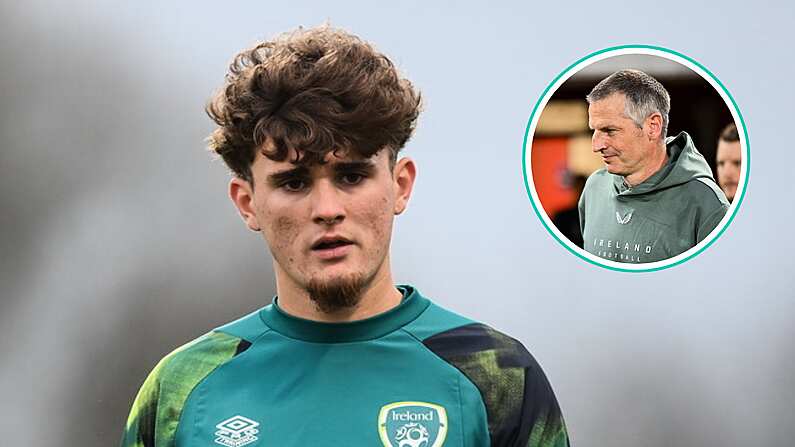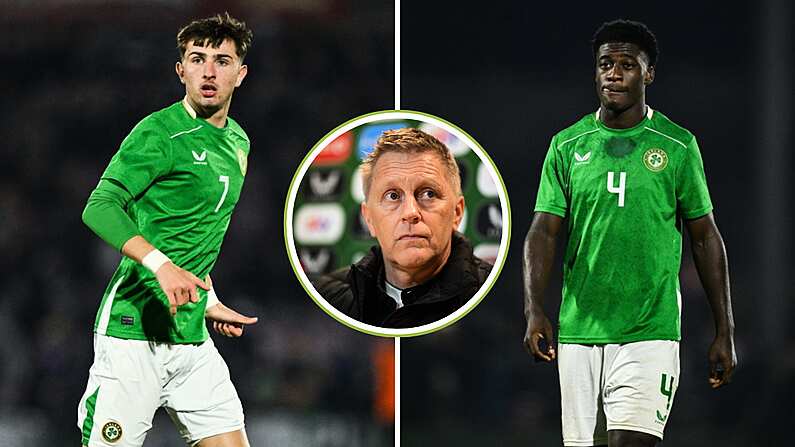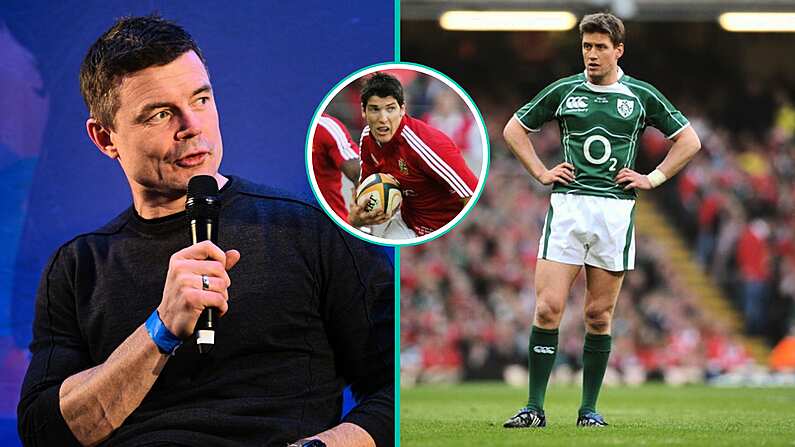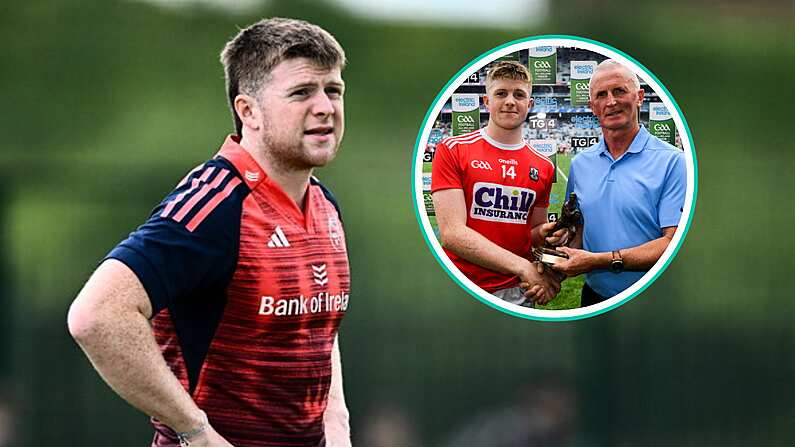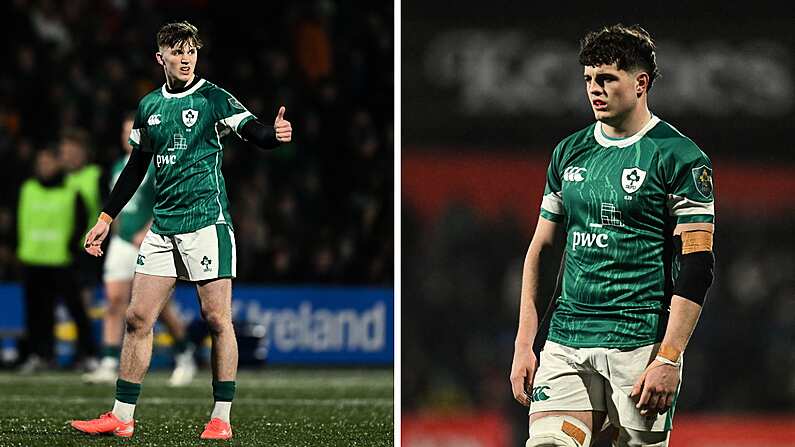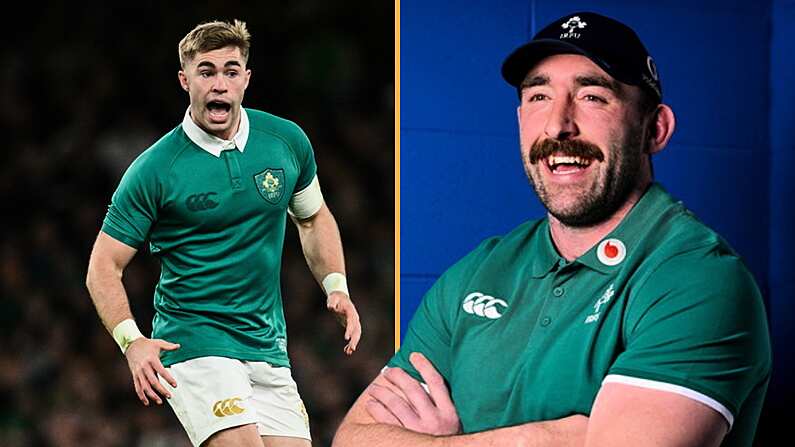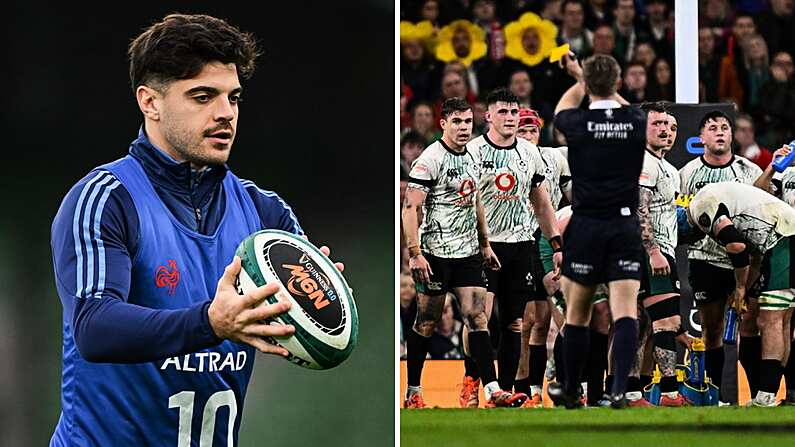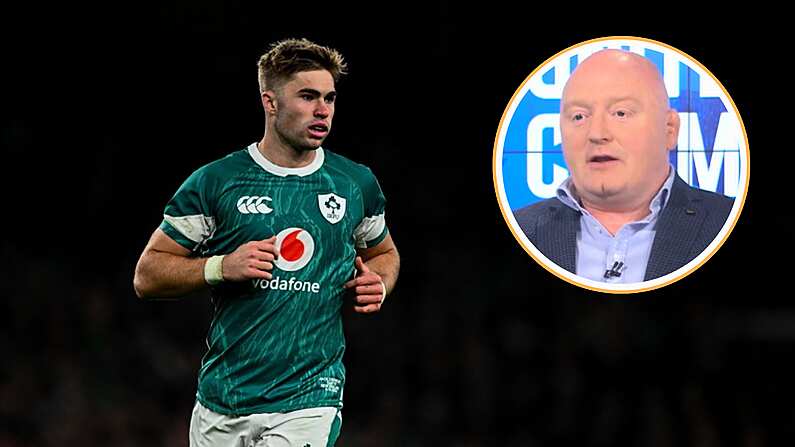Winning trophies isn't always the primary aim of national age-grade teams. The Irish U20s program plays a crucial role in the broader age-grade system of Irish rugby, focusing on player development and this year despite some average World Cup performances was yet another successful year.
The Ireland U20s rugby team concluded another season with a 4th place finish at the World Rugby U20s Championship. In their final match against New Zealand, played on a heavy pitch in Cape Town during the South African winter, Ireland struggled against a powerful baby Blacks in a 38-28 loss.
Ireland's tournament journey began promisingly with an impressive 55-15 win over Italy. They then faced a tough game against a very competitive Georgian side, securing a narrow 22-16 victory with a last-minute try by winger Finn Tracey. Due to a waterlogged pitch, their game against Australia was cancelled. Despite this, Ireland topped their group and advanced to face England in the semi-finals.
The semi-final proved challenging for Ireland as they struggled to match England's physicality, particularly in the scrum. The absence of their excellent head coach Richie Murphy, who departed after the Six Nations, seemed to impact the team's performance throughout the tournament as they never reached the heights they did under Murphy.
A beauty of a try from the Ireland U20s! 😮💨#FutureIsGreen
pic.twitter.com/sWcYhQZWab— Irish Rugby (@IrishRugby) July 14, 2024
Future Challenges - Game Time for Young Players
A significant issue facing the Irish system is finding sufficient game time for talented young players. With only four professional teams in Ireland, it's increasingly challenging for new professionals to gain the necessary experience to advance their careers.
The disparity in professional game experience between French and English players and those from other nations, including Ireland, was evident during the tournament. For instance:
- France's squad had accumulated 167 games (8,491 minutes) in the Top14/ProD2 leagues.
- England's winning team had 65 games (2,973 minutes) in their domestic competition.
- In contrast, Ireland had just 16 games (274 minutes) of professional experience, with only two players contributing: Brian Gleeson (Munster) with 11 games (181 minutes) and Ben O'Connor (Munster) with 5 games (93 minutes, all as a replacement).
Addressing this gap in professional exposure is a key challenge for Irish rugby moving forward.
Scrum Concerns
Another issue highlighted during the season was Ireland's struggle in the scrum, particularly against teams like England and Georgia. Finding a solution to this recurring problem, which affects many Irish teams, is crucial.
Promising Prospects
Despite the challenges, several players from the 2024 U20 World Cup squad are poised for successful professional careers. Many will join their respective provincial academies, with some potentially featuring in the 2027 World Cup.
Notable prospects include:
- Brian Gleeson (No. 8): Already featured in the European Cup with Munster, showing promise but facing stiff competition in the Munster back row.
- Hugh Gavin (Connacht): His versatility as a centre and wing could be valuable for Connacht, potentially pairing with experienced players like Bundee Aki.
- Jack Murphy, Wilhelm de Klerk, and Sam Berman (fresh from his hat-trick v Italy): Moving from Dublin to Belfast to join the Ulster academy, seeking more URC game time.
Sam Berman on the double for Ireland U20s in Cape Town! 🙌#FutureIsGreen
pic.twitter.com/4U2Uv6T8U1— Irish Rugby (@IrishRugby) June 29, 2024
That's how you open the scoring! 🔥
Jack Murphy dives over for @IrishRugby ☘️
You can watch all the action for FREE on RugbyPassTV 📺#WorldRugbyU20s | #IREvNZL pic.twitter.com/eb7vfXYO6a— World Rugby (@WorldRugby) July 19, 2024
This season has provided valuable learning opportunities for the Irish team and laid a strong foundation for their future rugby careers. The 2024 U20s group, despite their World Cup semi-final defeat, had an impressive season, going unbeaten in the Six Nations and finishing as runners-up to England. It also underscores the challenges facing Irish Rugby in ensuring young players get the exposure and experience needed to compete at the highest level in professional sport.
The potential of these young players is undeniable. With patience, determination, and strategic development, many are likely to achieve great success in the years to come, contributing to the bright future of Irish rugby.

